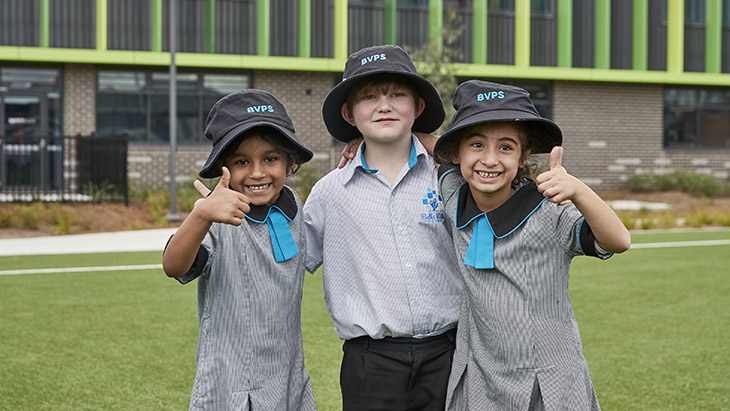Aisha's story

1. What are Aisha's strengths and what has been helpful so far?
Aisha's strengths:
- Aisha can recognise and write her own name and ten of the Magic 100 words.
- Aisha’s family members are supportive and very involved in providing support and instruction at home.
- Aisha has access to learning support within the classroom.
- Aisha receives ongoing therapy and support with an OT and a speech pathologist.
What has been helpful:
- Aisha is motivated to learn.
- Aisha has a strong interest in dinosaurs and animals.
- Aisha works well one-to-one when learning challenging or new tasks.
- Aisha works well with visual supports, repetition, and a timer set to a maximum of 10 min for high-focus tasks.
What has not been helpful:
- Aisha gets restless and begins walking around the classroom when asked to focus for longer periods of time.
- Aisha becomes distracted when working with more than three peers.
2. What is the goal and why is it important?
The goal:
The overall goals are for Aisha to remember the ten Magic 100 words she currently knows and learn twenty new ones by the end of Term 3.
These goals may be developed into growth goals as part of the collaborative curriculum planning process and included in Aisha’s Personalised Learning and Support Plan.
Why:
Learning high frequency words helps increase reading speed, reading accuracy, reading fluency and reading comprehension, all of which will support Aisha in other areas of her education, and in her future autonomy and independence.
Personalised learning and support will ensure Aisha enjoys a rigorous and meaningful education.
3. What evidence-based strategies can be used to reach the goal?
Strengths
- Aisha works well with visual supports, repetition, and a timer set to a maximum of 10 min for high-focus tasks.
- Aisha has a strong interest in dinosaurs and animals.
Strategy
- Visual instructions will include: a 10-minute timer will be set for daily reading and for writing tasks, and a visual schedule will show her what will happen before and after tasks.
- Short movement breaks and opportunities to play with the dinosaur Aisha brings from home will be offered after these tasks.
- Reading material featuring animals and dinosaurs will be selected where possible.
__________________________________________________________________________________________________________________________
Strengths
- Aisha has access to learning support within the classroom.
- Aisha works well one-to-one when learning challenging or new tasks.
- Aisha is motivated to learn.
Strategy
- Aisha’s teacher and School Learning Support Officer (SLSO) will get her attention through making eye contact, using her name and using gestures before engaging in tasks.
- One-to-one explicit teaching of the Magic 100 words will include the use of demonstration, most-to-least prompting, repetition, visual support (see above) and scaffolding.
- Hands-on and visual learning approaches (for example; trace the sentence, and use a coloured pencil for the target words) will be used.
__________________________________________________________________________________________________________________________
Strengths
- Aisha’s family members are supportive and very involved in providing support and instruction at home.
- Aisha receives ongoing therapy and support with an OT and a speech pathologist.
Strategy
- Aisha’s teacher and SLSO will work in partnership with her family and allied health to develop a consistent approach to reading and writing tasks between home, school and therapy.
- Gestures and visual supports provided by Aisha’s allied health specialist team will be incorporated in the classroom and in teaching tasks.
- Aisha’s teacher and SLSO will use a weekly email to communicate with Aisha’s family and allied health specialist team to share and monitor progress.
School Excellence Framework alignment
Wellbeing, Effective classroom practice
Australian Professional Standards for Teachers alignment
Standard 1: Know students and how they learn
Audience
Primary teachers, SLSOs
Purpose
This resource explores Aisha's experience in the classroom. Aisha is a primary student who has an intellectual disability. The example of practice features some of the strategies that have support Aisha at school.
Reviewed
November 2021. Share your feedback here